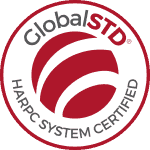

COMPLIANCE CERTIFICATION
HARPC
This system guarantees that all hazards related to food are prevented or minimized, complying with the FSMA Act of the FDA.
The FDA’s Food Modernization and Safety Act, also known as the FSMA Act, is final, and some companies—as required by the Law—have been working with it since 2016. The final standard is the result of the FDA’s unprecedented level of dissemination activities for the industry, groups of consumers, the agency’s representatives at local, state, and federal levels, and other interested parties. It is the first time in over sixty years that the development and application of food-safety regulations with a preventive focus is included.
The food producers, processors, and exporters to the United States must implement preventive measures to control the process, food allergens, and safety throughout the supply chain, as well as a recall plan to withdraw products from the market.
HARPC SYSTEM REQUIREMENTS
Each branch shall write a HARPC plan that includes the following:
- Risk analysis, to identify and evaluate known and probable hazards in agreement with food and process type.
- Preventive control shall ensure that identified hazards which could probable happen can be significantly minimized or prevented.
- Monitoring. To make sure the preventive controls works as established and there are records.
- Corrective actions. Actions that take place if there’s no control or ineffective which implies a reevaluation and change of plans.
- Verification; To make sure the control works consistently. This includes to validate preventive controls effectiveness for identified hazards.
- Registries; including hazard analysis, as well as preventive control, monitoring activities, corrective actions and verification (this includes validation).
IMPORTANT:
Every HARPC plan shall be properly documented and fulfill regulations and FDA definitions related to facilities, hazard control and food adulteration. HARPC requests that each food facility records every plan aspect, to constantly review it, updated and record the verification steps.
COMPLIANCE AUDITS
Audit under Global Standards methodology

BENEFITS
These are some benefits that will be shown once established:
To have a registry in FDA and an to have exporter characteristic.
To enter products to EE.UU.
Consumer trust.
Government regulations compliances in EE.UU. (FDA)
HOW TO BE CERTIFIED?
The certification process pays attention to every detail to make sure that the company duly complies with all of the standard’s requirements.
1
Quote and signing of the contract
2
Planning and Development of Audit
3
Closing of Non-Conformities
4
Certification Committee and Issuance of the Certificate

NEXT COURSES